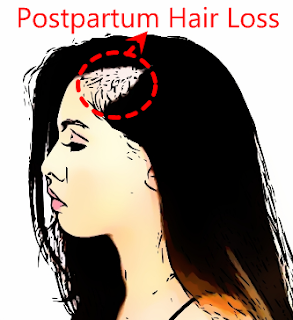Postpartum Hair Loss Will It Grow Back? Recovery Tips
Approximately, 30 and 40% of pregnant women suffer hair loss for several months after childbirth and, this phenomenon is known as Postpartum Hair Loss. By adopting proper hair care and taking care of diet will not only help to minimize Postpartum hair loss but will also help in recovery of hair.
During the gestation period, there is an increase in the number of hair that are in the resting phase, and that represent 10% of the hair we already have, noting that it can be more numerous and thick. They can also grow in regions of the body where we did not have hair before. Therefore, at this stage it is less likely that we lose it due to the increase in the hormone level. Afterwards, the hair will return to its normal cycle of growth approximately 6 months after giving birth. The resting phase of the hair is shortened, with which it falls more and automatically new hair begins to grow.
Measures To Minimize and Recover From Postpartum Hair Loss
- Treat your hair gently when wet. Avoid brushing as little as possible. Also learn, how often is good to wash hair.
- Using dryers and other hot irons is not convenient. Let the hair dry outdoors if it can be. And if you really have to use the dryer, do it with cold air or use any good ionic hair dryer.
- Try to go with your hair down. For hair straightening you may use good quality ionic iron that make hair straight by use of negative ions without damaging hair shaft. Avoid tight or braided collections that exert pressure.
- Try to return to the natural color of the hair if you have it dyed by chemical, so as not to attack the hair structure.
- Avoid stress.
- And above all, and the most important thing is to have a correct diet rich in fruits and vegetables that provide all the necessary nutrients to maintain healthy and strong hair. Checkout the best foods, vitamins, and herbs to make hairs healthy and grow fastly.
To recover hair after pregnancy, it is necessary to ensure vitamin B consumption, which is mainly contained in brewer’s yeast. Also provide vitamin C which is present in vegetables and citrus fruits. Vitamin E with antioxidant property (like the previous one) that is in extra virgin olive oil and wheat germ. Zinc helps control cell growth present in cereals, nuts and legumes. Sulfur amino acids (cystine and methionine) in dairy products, eggs, meat and fish, ideal for the formation of collagen and hair protein components.


Comments
Post a Comment